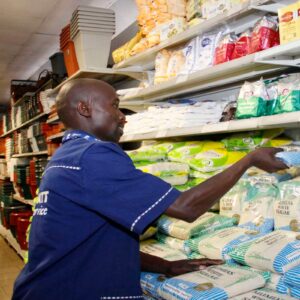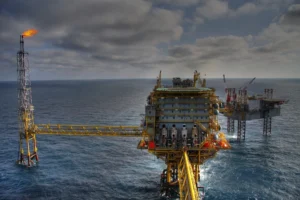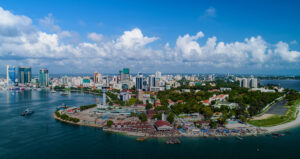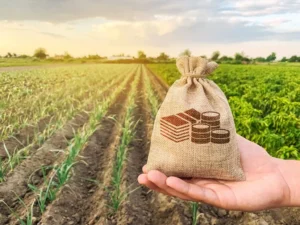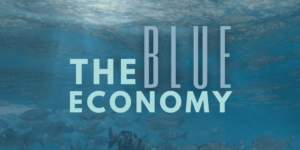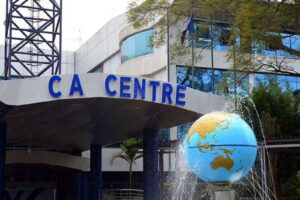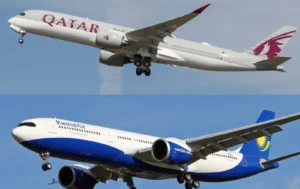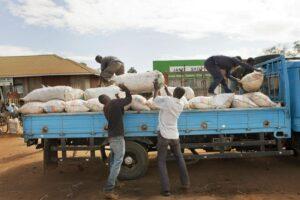- Africa’s new dawn: the rising role of digital and AI in agriculture
- Can Dangote Refinery Transform Africa Energy Ambition
- Gallup Survey: 80 per cent of Kenyan Workers Are Disengaged and Seek New Opportunities
- Madagascar Man Freed from 5KG Tumor After 15-Year Struggle
- How women in Africa are perceived and treated
- Sugar consumption in Kenya to Increase to 1.23 Million Tonnes
- Can Somalia and Turkey Oil deal Bring Change in Somaliland
- Remittances to Kenya dropped to $371.6 million in June, marking a six month low
Industry and Trade
- The construction took over 20 years and bears a processing capacity of 650,000 barrels per day 250,000 per day of gasoline and 100,000 of diesel.
- The Dangote oil refinery might halt the decades-long gasoline trade from Europe to Africa worth $17 billion each year.
Dangote Oil Refinery
Aliko Dangote, Nigeria’s and Africa’s wealthiest man ambition to foster energy reliance in his motherland and the region at large might be at risk. The giant oil refinery which is said to possess the potential to end decades-long gasoline trade from Europe to Africa worth $17 billion a year.
Concerns and tensions are high as a myriad of issues emerged before and since the $ 20 billion refinery came to life. According to various news reports, including the BBC and Reuters, the construction began in 2016 and started producing diesel and aviation fuel in January this year as petrol is expected to …
- Sugar consumption in Kenya is also expected to increase by 3.2 per cent this year driven by tourism and bakery
- Following the expiration of the ban in November 2023, production is expected to rebound significantly in 2024/25
- The survey also says that the growth in Kenya’s tourism sector will continue to create demand for sugar.
Kenya is expected to record a rise in sugar imports, as the effects of a ban on immature sugarcane processing kicks in, new findings have revealed. This is however expected to ease as millers ramp up their production
A report released by Fitch Solutions Company BMI and the United States Department of Agriculture shows that, the country should expect production to decrease by 32.9 per cent year on year in 2023/24 down to 530,000 tonnes from 790,000 tonnes in 2022/23.
This has majorly been attributed to the ban on sugarcane harvesting that was implemented in …
- According to the Turkish Energy Minister, Turkey will have exclusive rights for search and production when we find oil in these areas.
- Turkey and Somalia signed a defense and economic cooperation agreement during the Somali Defence minister’s visit to Ankara
- In March Somalia inked an oil and gas deal with Turkey which officials mentioned would foster cooperation in the exploration and exploitation of the deposits.
Somalia and Turkey Oil Deal
Despite being torn apart by civil war, Somalia’s geo-seismic studies have shown the war-torn country may have at least 30 billion barrels of oil and gas reserves.
Inching towards stability and fostering civil rest amid Islamic insurgents posing a threat to peace and harmony, Somalia’s newly discovered oil and gas deposits could be the nation’s breakthrough.
Although the resources take time to develop – exploration usually takes three to five years and production can only begin after the latter is …
- Zanzibar invests in improving Isle’s aviation industry as President Hussein Mwinyi commends expansion works at AAKIA
- Construction underway to improve efficiency at Terminal 3 AAKIA
- Zanzibar’s AAKIA recognized for winning international Award
Aviation industry and tourism in Zanzibar
Aviation industry is the bedrock of the tourism sector in Zanzibar, it is dependent on a successful airline industry, and as a tourism destination having frequent flights from top international airlines is the key to growth.
As an archipelago off the coast of Tanzania, Zanzibar is made up of three main islands, that is; Zanzibar, Pemba, and Mafia Island.
To strategically grow its tourism sector, all three islands have their airport, the largest and busiest is the Zanzibar Abeid Amani Karume Airport. The airport is named after Abeid Amani Karume, the island’s first president.
Zanzibar is working on the construction of a new passenger Terminal building (Terminal 3) at the Abeid …
- Insurance emerges as a beacon of hope in mitigating risks and managing resilience across the agricultural value chains.
- Partnerships between the government and private entities are needed to devise, develop, and establish efficient and sustainable solutions to risks in the agricultural value chains.
- To cope with the additional pressure of climate change on socioeconomic development and food security, Africa has adopted a policy framework that concedes and puts emphasis on the importance of strengthening climate and disaster resilience.
Agricultural value chains are multi-faceted industries encompassing farmers, agro-processors, and traders. The resilience of each impacts the entire system. However, the vulnerability of these facets to various risks threatens the stability and sustainability of the whole value chain.
Agriculture remains vital in feeding nations and maintaining economic stability in the ever-changing global economies. Despite its immense contribution, it faces a series of challenges. From unpredictable weather patterns to market fluctuations, posing a …
- Finance Bill 2024 Proposals seek to introduce a 25 per cent excise duty on vegetable oils, which KAM says will drive upwards the cost of cooking oil.
- The proposed finance law aims to expand Kenya’s tax base by bringing more economic activities into the tax net.
- This, according to KAM, will lower the cost of living for Kenyans and create prosperity for the country.
The Kenya Association of Manufacturers (KAM) has raised concerns over the state’s proposal to increase the Import Declaration Fund (IDF) from 2.5 per cent to 3 per cent.
In a raft of proposals to the government, the manufacturers highlighted some of the expected impacts of the proposed law on Businesses in the East African nation.
KAM argues that the imposition of IDF will significantly elevate the costs of raw materials, thereby stifling the manufacturing sector’s ability to add value.
In a statement on Monday, May 20, …
- Kenya is pioneering steps towards integrating the concept of the Blue Economy within its governance structure
- Blue Economy has the potential to create direct jobs in the shipping and fishing sectors while indirectly creating jobs
- According to Kenya Maritime Authority (KMA), the industry regulator, Kenya exploits just 8 per cent of the potential of its marine fisheries.
Kenya’s marine potential is vital for social and economic growth and development of the country. Kenya is pioneering steps towards integrating the concept of the Blue Economy within its governance structure have set a precedent for sustainable development in the African continent. With the establishment of the Ministry of Blue Economy, the nation has showcased its commitment to harnessing the vast potential of its marine resources. This move signifies a crucial shift in prioritising the preservation and utilisation of the ocean’s bounty, in line with global sustainability goals.
Kenya has a long coastline …
- The Communications Authority of Kenya has finalised Phase I of the cellular mobile infrastructure project which connected 76 sub-locations.
- The authority also targets the expansion of the postal services and digitally empowering the youth.
- The Authority finalised the rollout of Internet connectivity in 886 public secondary schools spread across 47 counties.
The Communications Authority of Kenya will need at least Sh107 billion ($819.9 million) to protect consumers and foster competitive ICT markets in a bid to establish Kenya as a digital superhighway. While unveiling its five-year strategic for 2023-27, CA Director-General David Mugonyi said the authority would prioritise increased broadband penetration, adoption of emerging technologies and improvement of cyber security as a way of powering the government’s Bottom-Up Economic policies.
The authority also targets the expansion of the postal services and digitally empowering the youth, women and people living with disabilities. “The goals are backed by a robust implementation plan …
- Sustainable Trade in Tanzania seeks to integrate the strengths of private sectors and civil society organisations to promote green growth.
- The plan seeks to grow trade practices that are both inclusive and environmentally sustainable.
- The project seeks to improve trade resilience to climate change by advocating for sustainable trade practices.
The Foundation for Civil Society (FCS) and TradeMark Africa have sealed a grant agreement to launch a $ 900,000 Private Sector and CSOs project to drive sustainable Sustainable Trade in Tanzania and inclusive business practices, addressing the significant systemic challenges in Tanzania’s trade sector.
Funded by the Foreign, Commonwealth & Development Office (FCDO), Ireland, and Norway, the TZS2.3 billion ($900,000), the project seeks to integrate the strengths of private sectors and civil society organisations to promote green economic growth.
Many women in Tanzania remain in the informal trading sector, facing barriers such as limited access to finance and inadequate training …






